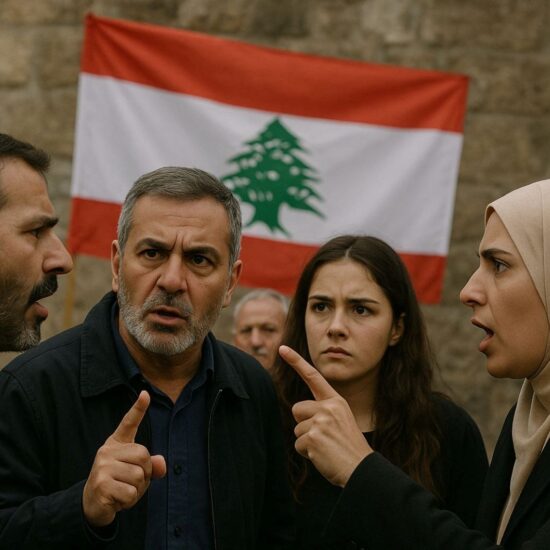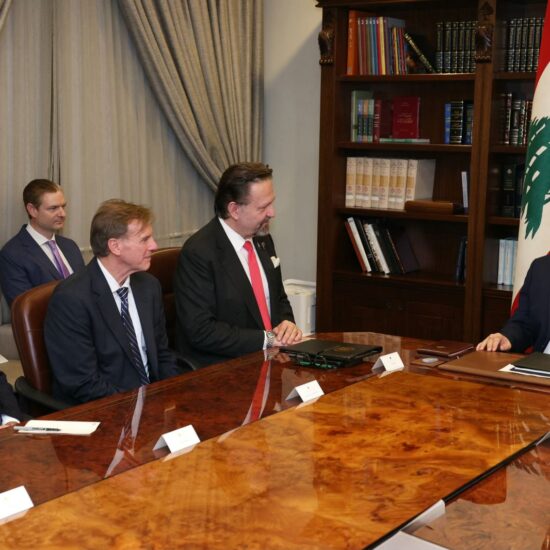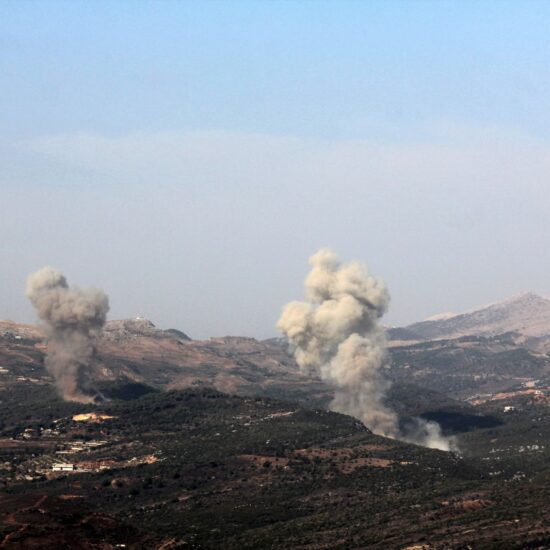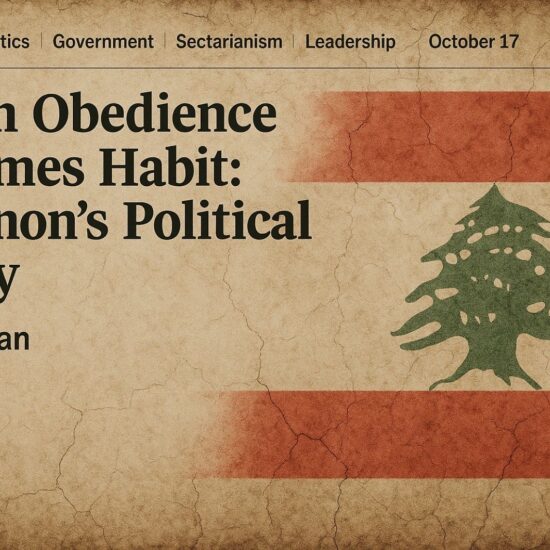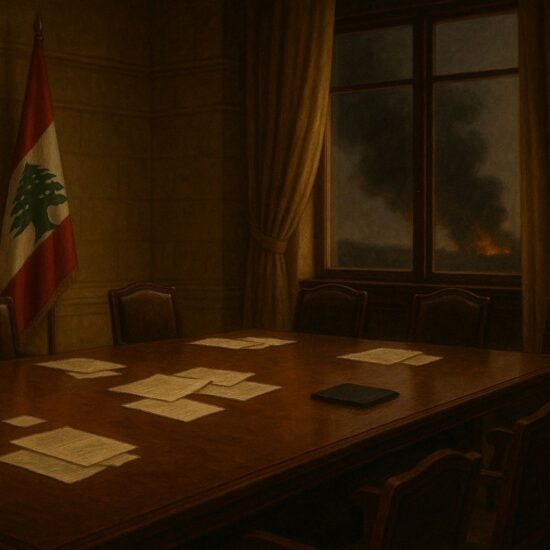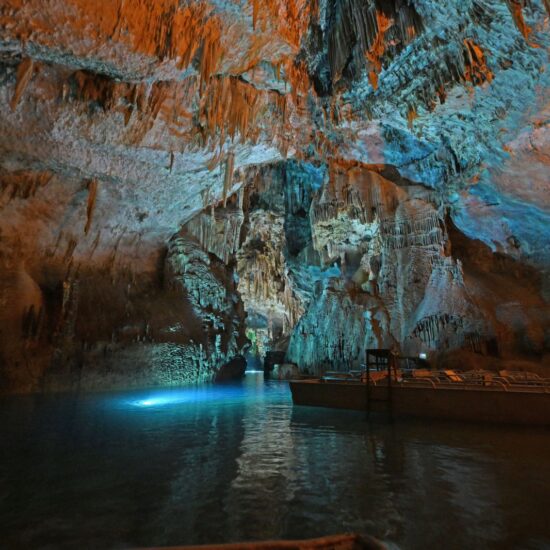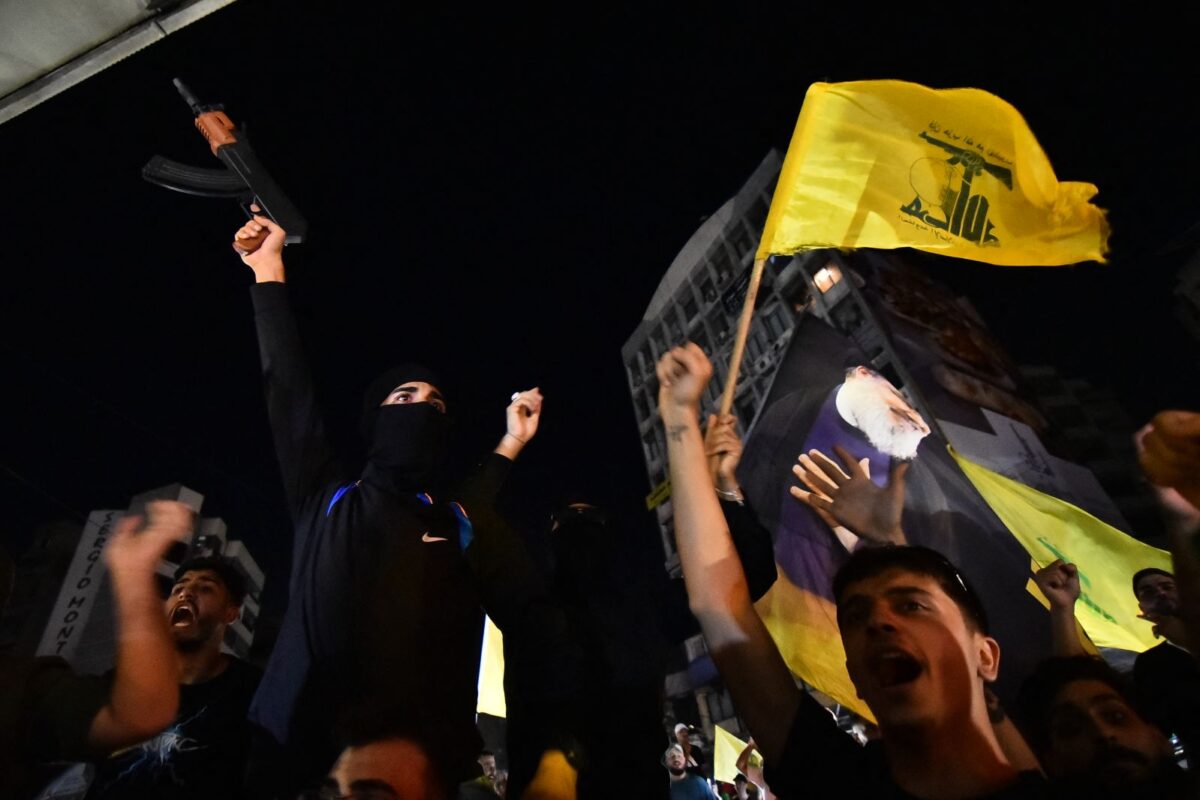
Cabinet session to discuss disarmament implementation plan began at 3:00 pm on Friday, with Shiite ministers withdrawing, Hezbollah says Lebanon move on army plan is ‘opportunity,’ yet urges Israel to commit to ceasefire, Violent clashes erupt in Palestinian camp of Bourj el-Barajneh one week after ‘performed’ disarmament, Israeli drone bombs UNIFIL position in south Lebanon, Israeli strikes intensify against multiple locations in south Lebanon, 100,000 displaced from Gaza City, Gaza genocide reaches 700th day as Israel steps up carpet bombing and forced displacement, Pope Leo XIV meets Israeli president Herzog amid Gaza crisis, UAE warns Israeli West Bank annexation would cross a red line, MSF warns of escalating risk of ethnic cleansing in West Bank, Xi hails China’s ‘unstoppable rise’ during massive Victory Day parade, Two killed in drone strike on car near Aleppo airport, Druze leader in Suwayda demands self-determination, thanks US and Israel for support following government massacres, Ankara says SDF failure to merge with Syrian forces threatens Turkish security, Yemen’s Houthis claim responsibility for drone attack on Israeli airport, UN employees detained by Yemen’s Houthis suspected of spying, Sudan appeals for aid after landslide kills more than 1,000 in Darfur
“We did not make concessions. Nor did we correct the course. We continued what was started on August 5 regarding a monopoly on weapons without causing any shocks.” These are the remarks that on Friday, immediately after the end of the long-awaited Cabinet session at Baabda’s presidential palace, Information Minister Paul Morcos made to the press: confirming, yet another time, the typical Lebanese compromise strategy of postponing fundamental decisions – seeking to please everyone by juggling between internal factions and external superpowers. As for things to remain the same, everything must change.
In fact, the only decision that could leave everyone satisfied – even the same ministers who left the session – was not to decide. Or, in Morcos’ euphemistic terms, to confirm a previous decision “without causing any shocks.” Which is, in practical terms, to receive the plan put forward by Army Chief Rodolph Haykal to dismantle the militias’ arsenals, starting with Hezbollah, without formally accepting it – in a way not to completely alienate the Shiite tandem. And at the same time, to send a new positive signal to the international community by promising to submit a monthly report on the matter. Yet without completely yielding to the deadlines imposed by the Americans.
As Morcos put it: “The army will act within the framework established on August 5, but it reserves the right to an operational assessment,” adding that the force “will start implementing the plan according to available and limited means.” A vagueness that could not fit more precisely into the outline set out by both President Aoun during his inaugural speech and the Salam team’s ministerial declaration, both approved by the Amal-Hezbollah alliance.
Expected withdrawal, unexpected optimism
However, this was not enough to persuade their ministers to grant an audience to the Army Chief. Unsurprisingly, the four ministers of the tandem – Rakan Nassereddine , Mohammad Haidar, Tamara Elzein, and Yassin Jaber – left the meeting just after General Haykal arrived, in form of protest against the non-consensual decision of August 5 and 7, taken under heavy pressure from Washington, that the Shiite duo considered unconstitutional.
Once again, Fadi Makki, the fifth Shiite Minister – considered independent from the tandem – followed his community members’ lead, despite deliberately choosing to do so a few minutes after his colleagues’ withdrawal to distance himself. “Given the current situation and the withdrawal of a key component from the session, I cannot again assume responsibility for such a decision, so I decided to leave the session,” he explained on his X account.
“In the meantime, there needs to be more communication with the Shiite community,” Makki told L’Orient-Le Jour. Indicative of his difficult situation, the Minister even raised the specter of a resignation. “I told the president that if my resignation is in the country’s best interest, I am ready to hand it to him,” Makki recounted. “I am for the army’s plan, and I call on everyone to act rationally,” he added.
Labor Minister and Hezbollah MP Mohammad Haidar furtherly explained the reasons for their withdrawal: “Our withdrawal is in line with our refusal to discuss the American paper. The army commander presents his plan in the government session and we are awaiting its results to build on it, and communications are still ongoing. We will wait for what will happen in the session and then decide, and any decision taken without Shia representatives is unconstitutional,” he highlighted. “We respect and revere the army commander, and we spoke with him and greeted him, but we left before the plan was presented, and our step is not directed against the army. The army are our sons and we appreciate it, but our position is political and principled.”
Hezbollah claims it is open to discussing a national defense strategy, which would see its weapons incorporated into the Lebanese army and be available for use in defending the country if needed. Yet the group has emphasized that these talks cannot take place as Israel continues to attack Lebanon and occupy its territory in the south. Following this line, in fact, Hezbollah official Mahmoud Qamati told Reuters on Saturday that the group viewed Friday’s Cabinet session on an army proposal to establish a state monopoly on arms – including those of the party – as “an opportunity to return to wisdom and reason, preventing the country from slipping into the unknown,” though no specific timeline was set.
Qamati explained to Reuters that Hezbollah’s position was based on the government’s statement Friday that implementing a US-backed roadmap depended on Israel’s actions. He stressed that unless Israel stopped its strikes and withdrew from southern Lebanon, Lebanon’s implementation of the plan should remain “suspended until further notice.”
On the other side of the political spectrum, the compromise reached by Prime Minister Nawaf Salam was also well received. The Cabinet itself noted that ongoing Israeli attacks in Lebanon would obstruct the army’s efforts. After the meeting, Lebanese Information Minister Paul Morcos told reporters the Cabinet had not formally endorsed the plan – as he told the press, “we have no interest in causing internal conflict.”
Even Lebanese army chief Rudolphe Haikal has allegedly threatened to resign if the country’s troops are ordered to “spill Lebanese blood” by attempting to disarm the Shiite movement by force. Reports have also said that the army clarified during the session the obstacles standing in the way of disarming Hezbollah by force, and may not commit to any specific date by which the implementation should be complete.
At the same time, Israel has openly threatened to continue attacking Lebanon until Hezbollah surrenders its weapons – while the New York Times (NYT) reported on Thursday that US officials are threatening that Lebanon faces a new Israeli war if it fails to disarm Hezbollah. “Time is running out,” the interviewed US official has warned. And Lebanon, playing with the toy-scepter of its sovereignty, seems, for this time, to want to ignore the threat.
In Lebanon
Berri, Amal and the government: Speaker of Parliament Nabih Berri received the government proposal and the army’s plan positively. Neither specified a time frame for implementing the arms control plan, and both conditioned the implementation on Israel’s acceptance: an optimism that was shared with the movement he leads, Amal. Yet with some reservations regarding the government’s indifference towards the suffering of southern citizens.
On Thursday, ahead of a critical Cabinet meeting, MP Ali Khreis of the Amal Movement’s ‘Development and Liberation’ bloc emphasized that Parliament Speaker Nabih Berri remains “a guarantor of national unity and dialogue.” He stressed that sensitive national issues – especially the question of arms control – must be resolved through “national dialogue.” Khreis also urged Lebanon’s political factions to unite in calling for international pressure on Israel to stop its near-daily attacks on south Lebanon. He reaffirmed that the Lebanese army is a “key guarantor of security” and called for an end to “internal voices sowing discord.”
Fellow Amal MP Kassem Hachem, speaking during the funeral of a civilian killed in an Israeli strike on Shebaa on Wednesday, criticized what he described as the government’s indifference. “The government no longer pays attention, or has become accustomed to the bombings, destruction, killings, and expanding occupation – as if it’s become normal,” he said.
Hachem questioned whether current policies are being dictated by “external pressures or desires,” asking: “Where is our sovereignty and national dignity? Why this abandonment of the south’s suffering? Where are the means of resistance for residents of border areas, who form Lebanon’s essential line of defense against regional threats?”
Clashes in Bourj el-Barajneh: About one week after the disarmament of Beirut’s Palestinian camps, on Wednesday, September 3, violent clashes erupted in Bourj el-Barajneh, in the capital’s southern suburbs. News about families’ displacement from the camp rapidly spread, as sounds of explosions caused by automatic weapons, RPGs, and explosives – allegedly following an internal dispute – shook the surrounding highly-populated neighborhoods.
Followed by the camps of southern Lebanon – al-Bass, Rashidieh and Bourj el-Shemali, in the area of Tyre – the disarmament of the Palestinian camps of Beirut was soon described as a failed performance. A senior Palestinian National Security official in the camp, known as Abu Arab, told Al-Jadeed TV that the weapons being handed over – including machine guns, RPG rockets, and ammo – were not the factions’ own, but rather arms that entered the camp illegally within the 24 hours that preceded the disarmament, as confirmed by a Fatah official interviewed by Reuters. According to Al-Mahatta, the televised handover resembled a ‘theatrical performance’ following an understanding between Yasser Abbas – son of Palestinian President Mahmoud Abbas – and Lebanese President Joseph Aoun to deliver a portion of weapons from inside certain camps.
Moreover, most groups inside the camps – like Hamas and the Islamic Jihad – had immediately rejected the move, and even within Fatah itself many wings opposed it, reflecting internal power struggles within the Palestinian Authority.
At the same time, Palestinian factions in Lebanon declared in a joint statement that the handover of some weapons in Beirut’s southern camps does not mark an official disarmament of Palestinian factions in Lebanon, and that they will not give up their weapons as long as Palestine remains occupied. “What occurred was merely internal organizational arrangements specific to Fatah, and not reflective of any broader action concerning Palestinian weapons within the camps. All reports suggesting intentions to hand over weapons from within those camps – particularly Burj el-Barajneh – are completely false and have no bearing on reality,” the statement read.
UNIFIL targeted: Last Tuesday, September 2, Israeli drones dropped four grenades near UNIFIL personnel, landing meters away from troops clearing access routes to one of its border positions in southern Lebanon. The attack occurred southeast of the village of Marwahin, and was described as “one of the most serious attacks on UNIFIL personnel and assets since the cessation of hostilities agreement of last November,” according to the peacekeeping forces.
The UN mission emphasized that the Israeli army had been informed in advance of the road clearance, which was intended to remove obstacles blocking access to a UN position.
The incident came less than a week after the UN Security Council voted unanimously to extend UNIFIL’s mandate until the end of 2026, after which UNIFIL will spend a year winding down and withdrawing, and the Lebanese army will take over security in its former deployment areas. Deployed in south Lebanon since 1978, UNIFIL’s mandate expanded in 2006 after Israel’s ground invasion.
The UN peacekeeping force has been subject to repeated attacks by Israeli forces in the past. In one instance, an Israeli airstrike on November 7, 2024 hit a convoy at a Lebanese army checkpoint in Saida, killing three civilians and injuring soldiers and UN troops. In October 2024 alone, Israeli fire repeatedly targeted UNIFIL positions on separate occasions, wounding several peacekeepers, including Indonesian and Sri Lankan soldiers, while tanks and drones struck and demolished watchtowers, and troops forced entry into a base in southern Lebanon.
UNIFIL spokesman Andrea Tenenti confirmed on 18 October of that year that Israeli attacks on UN personnel were deliberate, stating that the army had targeted the force “several times, including five deliberate times.”
Ongoing attacks: Israel has continued to attack Lebanese territory despite the ceasefire reached last November, while continuing to occupy five positions near the border and expanding its presence across south Lebanon.
Only on Wednesday, September 3, the Lebanese Ministry of Health reported that 3 people have been killed in Israeli airstrikes targeting the towns of Shebaa, Khraibeh, and Taybeh. An additional strike, on the same day, targeted a building in Al-Zrariye. Later at night, bombings intensified in an area between Adloun and Ansarieh, with 12 missiles on the same target: a construction equipment repair warehouse. Several Syrian workers at the site were injured. A fire broke out at the site, and fire trucks were dispatched to the scene. Also, an Israeli military drone bombed Dhaira, in the district of Sour, while another aircraft dropped sound bombs on Tayr Harfa, in the district of Bint Jbeil.
Later on Thursday, an Israeli drone targeted a prefabricated container in the Kharza neighborhood of Aita al-Shaab, Bint Jbeil, near the Lebanese-Israeli border – that was serving as temporary housing for residents whose homes were destroyed in previous Israeli strikes and are still awaiting reconstruction. In the same day, Israel dropped new leaflets in south Lebanon targeting a factory in Khiam, allegedly linked to Hezbollah – as part of a series of recent campaigns aimed at threatening workers rebuilding destroyed buildings.
On August 31, Lebanese Parliament Speaker Nabih Berri warned that Israel has increased its occupation and blocked residents of more than 30 towns from returning, calling a recent tour by Israeli army Chief of Staff Eyal Zamir an “insult.” Berri also criticized the Lebanese Cabinet’s decision to disarm Hezbollah, while accusing Netanyahu of pursuing a “historic mission” to absorb all of Lebanon into the so-called Greater Israel project.
In The Region
The ethnic cleansing of Gaza City: A security source estimated that between 70,000 and 80,000 people had already fled Gaza City between Monday and Wednesday, ahead of a planned Israeli operation in the area. Yet on Friday, Israeli Prime Minister Benjamin Netanyahu announced that already 100,000 Palestinians have left the assaulted city. On Tuesday, Israeli Army Chief of Staff Eyal Zamir announced the beginning of the ground invasion of Gaza City, prompting its residents to flee. The city previously hosted around 1.2 million residents and displaced individuals. According to the source, quoted by L’Orient-Le Jour, Hamas is actively using various measures to prevent the movement of civilians southward from Gaza City.
The source also stated that the designated humanitarian zone in southern Gaza will be expanded to accommodate up to two million people, with infrastructure scaled “in accordance with international law.” Further improvements are expected to continue as evacuations progress.
According to Haaretz, on the other hand, the Israeli military officials estimate that around 200,000 people – roughly 20 percent of Gaza City’s remaining residents – will refuse to evacuate and remain in combat zones, despite life-threatening risks.
Yet already on Thursday, the Israeli army announced that it controls roughly 40 percent of the city. In a televised briefing, military spokesman Brigadier General Effie Defrin stated, “we hold 40 percent of the territory of Gaza City,” and added that the offensive “will continue to expand and intensify in the coming days.” Later on Friday, then, the occupation army started to demolish all high-rise buildings in the area, in a way to accelerate forced displacement, targeting Mushtaha Tower and Mecca Tower, west of Gaza City, and later on Saturday demolishing Al-Sousi residential tower.
700 days of genocide: On September 5, Palestinians marked the 700th day of genocide by fleeing westward after receiving displacement orders from the Israeli army. Thousands have been forced to flee in recent days, while thousands of others have decided to stay despite the risk of death.
Gaza’s Government Media Office said on Friday that in the last three weeks, Israeli forces have killed 1,100 people and have detonated more than 100 explosive-laden robotic vehicles in civilian homes in Gaza City. “We strongly condemn these crimes and hold the Israeli occupation, the US administration, and the states involved in the genocide fully responsible,” it added.
The Israeli military claims that Hamas snipers and anti-tank units are posted inside multistory buildings in Gaza City, and added that it will target these buildings in the coming days. “The bolt is now being removed from the gates of Hell in Gaza. Once the door is opened, it will not be closed, and IDF operations will intensify – until Hamas’s murderers and rapists accept Israel’s conditions for ending the war, first and foremost the release of all hostages and disarmament – or be destroyed,” Israeli Defense Minister Israel Katz said earlier on Friday.
Israel’s five conditions for ending the war are the release of all captives in one go, the disarmament of Hamas, the demilitarization of Gaza, Israeli security control in Gaza, and “the establishment of an alternative civilian administration that does not indoctrinate for terror, does not dispatch terror, and does not threaten Israel,” Israeli Prime Minister Benjamin Netanyahu’s office said last week.
Pope Leo meets Herzog: Pope Leo XIV met with Israeli President Isaac Herzog at the Vatican on Thursday, as Israel advances plans to seize Gaza City. The Pope has consistently called for an immediate cease-fire, the release of captives, and an end to what he describes as Israel’s “collective punishment” of Palestinians, Middle East Eye reported.
Herzog arrived at the Apostolic Palace and was escorted past Swiss guards to meet the pontiff. According to Herzog’s office, the discussions focused on securing the release of captives, combating global anti-Semitism, and protecting Christian communities in the Middle East.
The Vatican clarified that Herzog requested the meeting, denying reports that the Pope had extended the invitation. Spokesman Matteo Bruni stated, “It is the practice of the Holy See to grant requests for audiences, it is not the practice to extend invitations.” The late Pope Francis had earlier condemned Israel’s actions in Gaza as “immoral” and disproportionate, calling for an investigation into whether they constitute genocide.
Red line: The United Arab Emirates has warned Israel that any annexation of the West Bank would be a “red line” for Abu Dhabi, severely undermining the Abraham Accords that normalized relations in 2020. As the fifth anniversary of the Accords, signed on September 15, 2020, between the United Arab Emirates (UAE) and Israel, approaches, Abu Dhabi is sounding more assertive.
Lana Nusseibeh, UAE Assistant Minister for Political Affairs, stressed that the accords were meant to support Palestinian aspirations for statehood and called on Israel to suspend annexation plans.
This marks the UAE’s strongest criticism of Israel since the Gaza war began. The Abraham Accords also include Bahrain and Morocco, brokered during the Trump administration. “We call on the Israeli government to suspend these plans. Peace requires courage and rejecting violence,” Nusseibeh added.
In that regard, Médecins Sans Frontières (MSF) issued a grave warning that Palestinians in the occupied West Bank are facing massive forced displacement, raising the risk of ethnic cleansing. Field teams have “witnessed policies and practices clearly designed to expel people from their land and prevent any return.”
Since the beginning of 2025, some 40,000 Palestinians have been forcibly displaced by large-scale Israeli military operations, particularly in the refugee camps of Tulkarem and Jenin, according to Al Jazeera. According to UN agency OCHA, at least 987 Palestinians – including over 210 children – have been killed by Israeli forces or settlers in the occupied West Bank and East Jerusalem between October 7, 2023, and August 25, 2025.
China’s Victory parade: Chinese President Xi Jinping hailed his country’s “unstoppable” rise on September 3 during a Victory Day parade marking the 80th anniversary of the end of the Second Sino-Japanese War and Second World War. Twenty heads of state attended the event in Beijing’s Tiananmen Square, including Russian President Vladimir Putin and North Korean President Kim Jong Un. Iranian President Masoud Pezeshkian was also present.
“The rejuvenation of the Chinese nation is unstoppable, and the noble cause of peace and development for humanity will inevitably triumph,” Xi said. “Today, humanity once again faces a choice between peace or war, dialogue or confrontation,” he added. The Chinese president also called on all nations to “eliminate the root cause of the war and prevent the recurrence of historical tragedies.” “Ensuring common security will only be possible when the nations of the world treat each other on an equal footing, live in harmony, and support each other,” Xi went on to say. Xi said the Chinese people “firmly stand on the right side of history.”
The ceremony also included a massive military parade. Chinese troops marched as drones, missiles, and tanks were displayed. Helicopters carrying large banners and fighter jets flew in formation above the parade. Among the weapons displayed were China’s liquid-fueled intercontinental strategic missiles, DongFeng-5C, which have a global strike range.
The parade came one day after the signing of over 20 cooperation deals between Beijing and Moscow, following talks between Putin and Xi at the Shanghai Cooperation Council (SCO) summit. Agreements were signed in the fields of energy, aviation, artificial intelligence, agriculture, healthcare, scientific research, and education. The two also moved forward with the plan to construct the Power of Siberia 2 gas pipeline. Russia’s state energy corporation referred to it as the “biggest, largest-scale and capital-intensive project in the world’s gas industry.”
During the SCO meeting, Xi and Putin called for “multilateralism” and taking a “stand against hegemonism” – comments which were viewed as a jab at Washington. Russia, the most sanctioned country in the world since the Ukraine war began, has intensified cooperation with China in an effort to circumvent western economic pressure. The US has recently cracked down on Russian oil exports, imposing heavy tariffs on India over its energy ties with Moscow.
“Please give my warmest regards to Vladimir Putin, and Kim Jong Un, as you conspire against the United States of America,” US President Donald Trump said in a post as the event kicked off, addressing China’s president.
Syrian disorder: A drone strike targeting a car near Aleppo International Airport in northern Syria on Thursday killed two people, according to a Syrian official cited by AFP. The toll was confirmed by the UK-based Syrian Observatory for Human Rights (SOHR), which has a wide network of sources across the country.
The official news agency Sana reported that “a drone targeted a civilian vehicle on the road to Aleppo International Airport,” without giving further details, particularly regarding who was behind the attack. “Two people on board were killed,” security official Ali Youssef told AFP. However, the Health Ministry, cited by Sana, reported only one death. An AFP correspondent at the scene saw a car completely destroyed near the airport, with shell fragments scattered around.
According to SOHR, the drone strike was carried out by the US-led international anti-jihadist coalition, and one of the two victims is believed to have belonged to a jihadist group. “The identities of the two victims have not yet been confirmed, as conflicting information circulates regarding their activities,” the NGO noted. Local sources said rescue teams rushed to the site immediately after the explosion.
Both Israel and the US-led coalition have carried out drone strikes in Syria. The coalition has repeatedly targeted Islamic State (IS) operatives in the north. In August, Syrian state TV claimed that coalition forces killed a senior ISIS figure in Atme, in the northwest of the country.
One day before, on Wednesday, an improvised explosive device detonated near the School checkpoint of the General Security Directorate, located in the Mezzeh 86 area. The device had been planted inside a vehicle, according to reports, and no casualties were reported. The General Security Forces cordoned off the Mezzeh 86 area following the explosion, yet authorities have not issued an official statement regarding the incident.
The Druze self-determination: The spiritual leader of the Druze community, Hikmat al-Hijri, reaffirmed his commitment to the right of self-determination, calling it a “sacred right guaranteed by all international conventions” that will not be abandoned “no matter the sacrifices.” He thanked the United States and President Donald Trump, Israel and its Prime Minister Benjamin Netanyahu, European coalition countries, as well as Kurds and Alawites in Syria’s coastal region for their support, urging continued backing and the opening of international crossings to lift what he described as a “systematic siege” on the people of Suwayda.
In a statement on Thursday, September 4, Hijri demanded the unconditional release of abducted Druze, describing the issue as “humanitarian before being political,” and pledged to “continue the struggle until achieving a safe, just, and dignified future.” He stressed that the Druze community has proven itself “one body acting with organization and solidarity,” capable of managing its own affairs and establishing an independent entity that guarantees dignity “under the umbrella of international law.”
Hijri also called for the return of “usurped” lands and said the Syrian government is covering up violations against Druze villages through “burning, killing, destruction, and the use of internationally prohibited materials.” His statement coincided with large demonstrations in Suwayda demanding self-determination, where protesters carried Druze and Israeli flags and openly called for independence from Syria.
A threat to Turkiye’s security: The failure of the Kurdish-led Syrian Democratic Forces (SDF) to integrate into Syria’s new security forces poses a threat to Turkiye’s national security, a spokesman for the Turkish Defense Ministry stated on September 5. “The SDF terrorist organization’s failure to fulfill its commitments to disarmament and integration into the Syrian state poses a threat to Syria’s unity and integrity as well as our national security,” Zeki Akturk said in a press briefing.
The SDF enjoys backing from the US military and is an offshoot of the Kurdistan Workers Party (PKK) led by Abdullah Ocalan. The PKK fought a decades-long insurgency against the Turkish state starting in the 1980s. The organization agreed to give up its weapons earlier this year at Ocalan’s urging. Turkiye claims the PKK is a terrorist organization and has used its presence in Iraq and Syria to occupy territory and establish military bases in both countries illegally.
SDF chief Mazloum Abdi and Syrian President Ahmad al-Sharaa signed a deal in March to merge the Kurdish-dominated Autonomous Administration of North and East Syria (AANES) into the Damascus government. The agreement called for the SDF to merge into Syria’s new security forces, which are dominated by Sunni religious extremists from Sharaa’s Hayat Tahrir al-Sham (HTS), the former Al-Qaeda affiliate.
However, Syrian Kurds are reluctant to relinquish control of the wealth generated by oil fields under their control in SDF-held territory in Deir Ezzor. They also fear Damascus may subject Kurds to massacres similar to those carried out by forces loyal to Sharaa, a former Islamic State commander, against Alawites in the coastal regions in March and against the Druze in Suwayda Governorate in July.
Sharaa’s government and security forces enjoy strong support from the Turkish intelligence services. “As Turkiye, our sensitivities on this matter are clear. It has been repeatedly stated that we will not allow the SDF terrorist organization’s sabotaging behavior and that we will resolutely continue the fight against terrorism in cooperation with Syria’s new administration,” the Defense Ministry spokesperson added.
Turkish politicians from President Recep Tayyip Erdogan’s ruling coalition have threatened military action against the SDF if it fails to implement the deal signed with Sharaa in March. Devlet Bahceli, leader of the far-right Nationalist Movement Party (MHP), claimed that the PKK decision to disarm also applies to the SDF. He stated that the SDF “appears to be within Israel’s orbit” and is taking part in Tel Aviv’s plan to divide Syria. In contrast, Pervin Buldan, a senior member of Turkiye’s pro-Kurdish Peoples’ Equality and Democracy Party (DEM), stated that Ocalan’s call for the PKK to disarm does not apply to the SDF. DEM Party co-chair Tuncer Bakirhan said it would be “unethical and unconscionable” for the Kurds to give up their weapons after the events on the Syrian coast and in Suwayda. “What guarantee can be offered that the Kurds will not experience the tragedy that the Alawites and the Druze endured?”, he questioned.
A Houthi drone strike: Yemeni Armed Forces announced that it carried out a large drone operation on 7 September, striking targets in the Negev, Ashkelon, Ashdod, Tel Aviv, Lod, and Eilat, including direct hits on Ramon Airport that shut down air traffic. The attack on Sunday, which targeted the arrivals hall and injured two people, had halted operations at the airport for around two hours.
The statement says Israeli and US defense systems failed to intercept several drones, and reiterates that airports are unsafe for international airlines. It adds that Yemen vows to escalate operations in support of Gaza and continue developing more advanced weapons.
In May, a Houthi missile hit near Israel’s main airport, Ben Gurion International Airport outside Tel Aviv, injuring four people lightly and causing many airlines to cancel their flights to Israel for months. Israel later struck and destroyed the main airport in the Yemeni capital, Sanaa.
Israel has been bombing several Houthi-controlled areas of Yemen, including the vital Hodeidah port. Its latest barrage killed senior Yemeni officials late last month, including Ahmed al-Rahawi, the Prime Minister of the Houthi-affiliated government and other cabinet ministers. Large numbers of civilians have also been killed in Israeli strikes.
Israel, Yemen and the UN: A senior Houthi official told AFP on Thursday that UN employees detained by the group in Yemen on Sunday are suspected of spying for the United States and Israel. “The arrested UN staff are accused of espionage for the American and Israeli aggression, and anyone whose charges are confirmed will face trial,” said the official, speaking anonymously on behalf of the Houthi Foreign Ministry.
The UN announced the previous Sunday that at least eleven of its staff were detained in Yemen, days after the killing of the Houthi Prime Minister and eleven other senior rebel officials in Israeli strikes on Sanaa, the capital controlled by Houthis since 2014.
At the same time, Israeli Defense Minister Israel Katz has threatened retaliation after three missiles were launched from Yemen by the Houthi group on Wednesday and Thursday. In a post on X, Katz referenced Biblical plagues, writing: “After the plague of darkness and the plague of the death of the firstborn, Israel will inflict the remaining plagues on the Houthis.”
Natural disaster amidst war: Sudan has appealed for international aid after a landslide destroyed an entire village in the western Darfur region, killing more than 1,000 people in one of the deadliest natural disasters in recent history in the country beset by a brutal civil war. The village of Tarasin was “completely levelled to the ground,” the Sudan Liberation Movement/Army (SLM/A), the rebel group that controls the area, said as it appealed to the United Nations and international aid groups for help to recover the bodies on Tuesday.
Sudanese authorities have later recovered the bodies of 370 more people killed in the landslide, while many others remain trapped under debris or were swept away by floodwaters.
The August 31 landslide that followed days of heavy rainfall in Tarasin, in the Marrah Mountains, could have possibly killed as many as 1,400 people. The United Nations Office for the Coordination of Humanitarian Affairs (OCHA) had a similar death toll estimate, but said it was difficult to confirm the magnitude of the tragedy because the area is hard to reach. The UN has said that efforts have been mobilised to support the affected area, located more than 900 kilometres west of the capital, Khartoum.
The Marrah Mountains region is a volcanic area with a height of more than 3,000 metres at its summit. The mountain chain is a World Heritage Site and is known for its lower temperatures and higher rainfall than its surroundings, according to UNICEF. A small-scale landslide hit the area in 2018, killing at least 19 people and injuring dozens of others, according to the now-disbanded United Nations-African Union Mission in Darfur.
Mohamed Abdel-Rahman al-Nair, a SLM/A spokesman, said in a statement on Thursday that the landslide caused a “catastrophic humanitarian situation” that required a rapid response from the international community to provide food and shelter for those who have lost everything.
The tragedy comes amid the ongoing civil war that erupted in April 2023 in the capital city, Khartoum. The conflict spread across the country after simmering tensions escalated between the Sudanese army and its rival paramilitary Rapid Support Forces. The conflict has killed tens of thousands and displaced some 12 million people. Famine has spread in parts of Darfur and southern Sudan, while cholera has affected large areas of the country, with Darfur hit hardest.
What We’re Reading
The future of UNIFIL: The UN Security Council has voted to terminate the mandate for the UNIFIL peacekeeping force in southern Lebanon at the end of next year after nearly five decades. It comes after Israel and the US pushed for the force to be ended, calling on the Lebanese armed forces to take on greater responsibility for eliminating the influence of Hezbollah’s militant group. The article of Rodayna Raydan.
Disarmament or diversion: Friday’s Cabinet session was meant to be a turning point. The Lebanese Army’s plan to restore the state’s monopoly on arms is finally on the table. But before ministers even sit down, the political chessboard is already shifting, Ramzi Abou Ismail writes.
Demonizing the state and worshipping the gun: On the 47th anniversary of the disappearance of Imam Musa al-Sadr, Speaker of Parliament Nabih Berri delivered a speech that, on the surface, seemed to recycle familiar rhetoric. Yet in substance, it revealed with unprecedented clarity the very nature of Lebanon’s crisis: the head of the legislature transforming the parliament’s podium from a platform of constitutional defense into a pulpit that justifies the dominance of Hezbollah’s weapons. The opinion of Makram Rabah.
Is it fight time?: Ahead of Lebanon’s pivotal Cabinet session on Friday, where ministers debated a highly sensitive plan to place all weapons, including Hezbollah’s arsenal, under state control, Dana Hourani analyzed the heightened domestic and regional tension, as international actors have tied financial and military support to progress on the issue, while Israeli airstrikes continue to strike towns in southern Lebanon, killing civilians and leaving dozens wounded.



